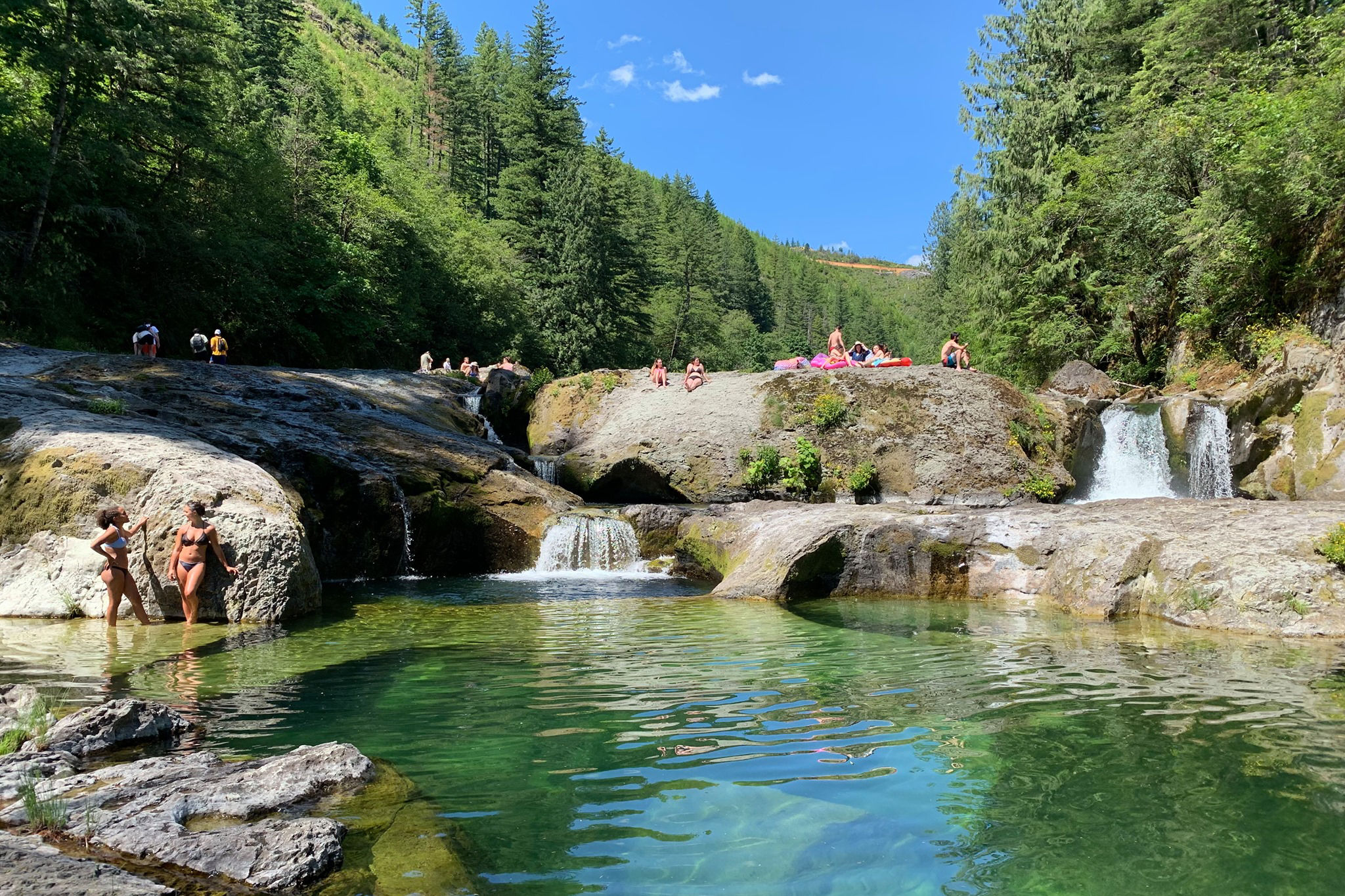Swimmer’s Itch, Giardia, and More Can Ruin a Good Lake Trip

A few things you don’t want to encounter when you take a dip
Swimmer’s itch
The most frequent plague of alpine lakes is, blessedly, the most minor. A person gets swimmer’s itch (a.k.a. cercarial dermatitis) from schistosomes, wee wormy parasites that travel from snails to aquatic animals like ducks or muskrats. But they’ll burrow into human skin, too, and cause an itchy rash with red pimples or blisters. A shower after a swim or firm toweling off can lessen risk, and the parasites don’t live long enough to bother you for more than a few days.
Giardia
A mouthful of lake water can lead to greasy diarrhea a week or two later from Giardia lamblia, a microscopic protozoan parasite that lives in intestines and can be spread through poop. Oregon’s not the reason it’s also known as beaver fever—that’s thanks to an outbreak among hikers who drank water downstream from a beaver dam in Canada’s Banff National Park. An infection might pass on its own or need to be treated with antiparasitic medication. Try not to drink while you’re swimming, and wash hands before eating.
E. coli
More often associated with contaminated food, Escherichia coli is giardia’s mean bacterial big brother and can cause stomach cramps, bloody stool, and even kidney failure. Over the past few years, elevated levels of E. coli have temporarily closed Umpqua Hot Springs and banned swimmers in Vancouver Lake.
Algae blooms
Forming a recognizable scum on the water, potentially toxic overabundance of cyanobacteria (misleadingly called “blue-green algae”) can close whole lakes to recreational use, with an increasing frequency that may be linked to climate change and warming temperatures. Effects of human ingestion range from mild irritation to nerve or liver damage, and it can be fatal for pets and livestock.
Extreme heat
Near the Alvord Desert in Harney County, geology enthusiasts and lizard lovers will find much to study at Borax Hot Springs (a short walk from the pretty but also dangerous Borax Lake, where a sign warns arsenic levels make the water “unsafe for human consumption”), but this is not a place to hop in for a soak, and definitely not a place to bring your pooch. Aside from violating wildlife-protection rules put in place by the Nature Conservancy, which manages the area, there’s also the risk you (or your dog) might get boiled alive.




